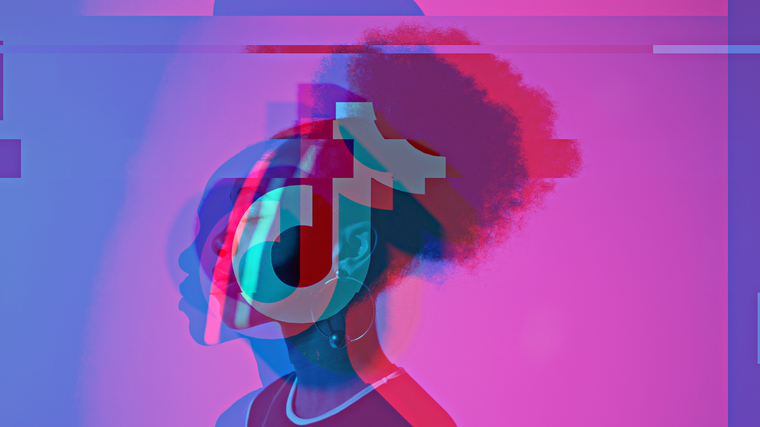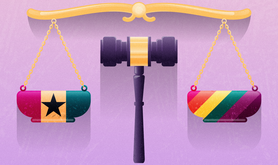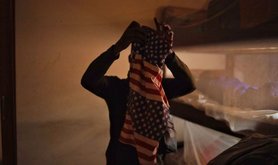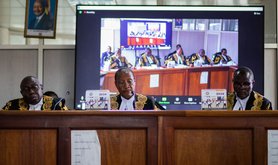LaBlanche, who often dances in her videos, currently has more than 35,000 followers. That’s a significant number in Togo, a small country of just eight million people of whom only 19% (1.5 million people) have internet access, according to data from 2019. It’s comparable to someone in the UK (population: 67 million) having more than 2.7 million followers.
Abused and criminalised
Although TikTok and other social media have been celebrated for offering marginalised people new spaces in which to share their experiences and connect with like-minded allies, in places like Togo their impact is limited. And expressing yourself online still carries risks.
“He struggles to handle the harsh criticism he gets online,” one person said of their gay friend, who is active on TikTok, but cautious and fearful of backlash after offensive comments were posted below his videos.
Other people I spoke to said harsh responses to their videos caused them to consider whether they should quit TikTok – the social media of choice for many young people in Togo (where the average age is 19), and elsewhere in the world.
“At first it bothered me a lot – it made me think a lot – but I ended up getting used to it,” said L’Arcadien, about the online abuse he’s received. “Today, it doesn't bother me at all.”
In June 2021, at the United Nations in Geneva, Togo’s human rights minister Christian Trimua reiterated that homosexual acts are criminalised in the country.
Article 88 of Togo’s penal code states that anyone who commits an “indecent or unnatural act with an individual of his or her own sex” will be punished by imprisonment for up to three years and a fine of up to 500,000 francs.
In their daily life, LGBT people in Togo (and even those merely suspected of being gay) face insults and sometimes physical attacks.
Amid this hostility, the videos made by young Togolese TikTokers appear revolutionary to viewers such as Hyppolite, an 18-year-old truck driver who told me that she is a lesbian and that having to hide her sexuality has made her withdraw from public life.
“When I go out, I don't talk to anyone in my neighbourhood. When I come home, I'm in my room,” she said. Once, a friend caught her kissing her girlfriend. “She promised me that it would remain a secret between us, and I want to believe her.”
But she has been inspired by L’Arcadien’s videos, she said, and is considering opening a TikTok account – and joining her generation of trailblazers using the internet to gain some, even if limited, safe space.






Comments
We encourage anyone to comment, please consult the oD commenting guidelines if you have any questions.